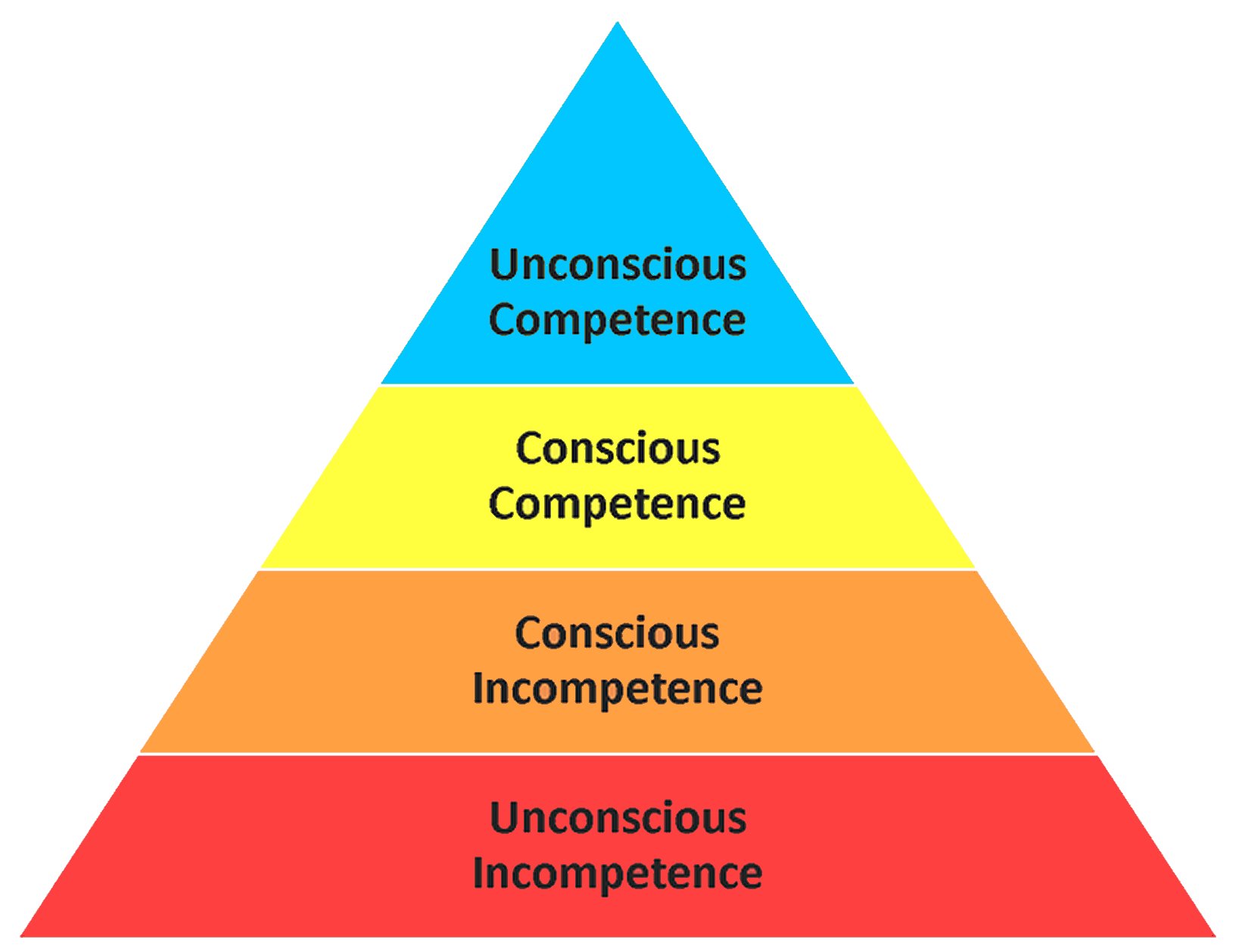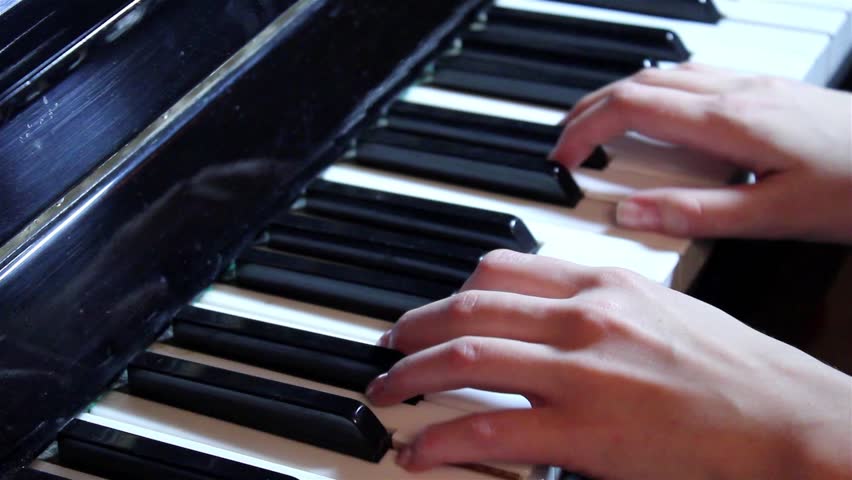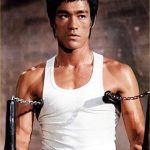If you find yourself working with a good coach, counselor, or consultant, you will be evaluating and exercising your thoughts, applying them to your skillset, then depending on where you are in the competency scale, you will find yourself moving through the phases of competency.
Not unlike the 7 phases of personal growth, where your mentor encourages you to move up the scale, your coach or mentor will be encouraging you to develop your innate skills to higher levels of competency.
The four phases of competency are
- Unconscious Incompetence
- Conscious Incompetence
- Conscious Competence
- Unconscious Competence
At the bottom of the phases of competence, is Unconscious Incompetence. This is to say that you only know what you know, and you have no idea what you need to know, and that’s okay. But when you are quickened, when a thought comes to your awareness regarding a skill you may need that is latent within you, you move from the first phase to Conscious Incompetence, because now you know you need the skill to be activated, but you haven’t done anything about it, yet.
In the third phase, Conscious Competence. You know you need a particular skill and you are actively practicing it. The more you practice, the better you get at it.
Your goal in personal or spiritual growth should be to seek out and embrace those skills which are a good match for you. Skills that resonate with you, who you are, what you do, and what you want to accomplish in this life.
Do not get distracted by skills that do not resonate with you. This is a trap that can keep you focused on trying to acquire skills that are not a good match for you. Too many people on a path to personal, professional, or spiritual excellence get distracted by trying to practice these skills.
Conscious Competence is a very important phase where you are trying on the skill for size to see if it is a good match for you. Once you’ve tried it on, you can see how it feels. If it is not a good match, you can invite someone into your inner circle, or hire someone who is extremely proficient in that area of expertise. You don’t have to master everything, but you do have to try it on.
Why?
Because when you hire someone, how will you know when they are doing a good job at practicing this skill? You will know if you have personally acquired some conscious competence about the skill because you’ve been there, done that.
You will know how to keep an eye on the people you are trusting to perform these skills and tasks for you. The general rule of thumb, when trusting those who are assisting you in your journey is to,
Trust, but Verify
You’ve invited these other people to assist you in your evolutionary process or achieving your highest and best, you’ve entrusted them with participating in your most sacred journey. So, keep a watchful eye on them, because even though you have the best intentions, there are wolves in sheep’s clothing who will seek to thwart your dreams.
Trust, but keep your security mindset about you. If you carelessly allow someone to take down your dream, you really have no one to blame but yourself for more being more cognoscente.
This doesn’t mean to go overboard and remain in a constant state of alert awareness, as this would keep you in a potential virtual state of panic which will wear you down, causing undue energy drain, and deterioration of your health and being.
Practice your due diligence. Know enough about the skill or task that you could do it yourself, but find someone you feel like you can trust who excels at this thing that is not a good match for you but be aware enough to check their work.
Then there is Unconscious Competence. This is when you’ve practiced a skill so much that you do it without thought or effort. You are so good at this thing, that you don’t even have to think about it. It is no longer a process or learned skill so much as it is just something that you do naturally.
Good coaches are always encouraging their clients to move those innate skills to a level of Unconscious Competence, not unlike training a champion archer to shoot blindfolded to move their skills into the Unconscious Competence phase.




